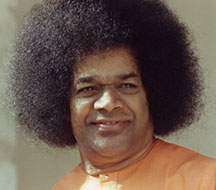
Paul and Jesus
Puttaparthi, Sai Kulwanth Hall (Christmas )
Description
Initially, Paul was a fierce critic of Jesus. Jesus appeared in a dream to Paul, and smiled. He patted his back and said, "Paul, What harm did I do you? What difficulties have I put you through? Then, why do you hate me? All your sufferings, all your losses, all your difficulties, are not given by me. They are the consequences of your own actions. You are only passing through the reaction of your actions. I have not given you any suffering." When Jesus blessed him so, the mind of Paul changed. Later he became a servant of God and he composed a text, and came to be known as "St. Paul". In this way, Jesus corrected wicked people, cruel people, bad people, and reformed them. It is only the body that is put to suffering. We have to worship Jesus keeping these ideals in mind, and not otherwise.
Chinna Kathas
-Religion
-

John becoming Moses
00:03:00At one time a messenger, an angel, was going through a book. John saw that and asked "What is that?" She said "Come, look at this book. You must go through it and digest it". He thought about the inner meaning of this statement, "partaking" a book and "digesting" it. It only means that the essence of the book must be taken to heart, and then it should be translated into action. Digestion means that the essence contained is practised. Valmiki stated the same in the Ramayana. Rama has learnt 64 arts, Ravana is also expert in 64 forms of knowledge. Both are the same in knowledge. But Rama practised what he knew. Ravana has not practised, and misused his knowledge. So Valmiki called Ravana a wicked one. Likewise today we acquire many forms of education but as the angel said, you have to digest all that you acquired. He accepted that he would practice all that he gained. Since then he practised every little thing. After the passage of time, John has taken the form of Christ. His face looked like that of Christ. All his words were those of Christ. All his actions were of Christ. In practice Jesus and John looked alike. In Vedantic parlance, it is said, "As you think, so you become." His name is Moses. He was thinking of God in every possible way and assumed his form.
